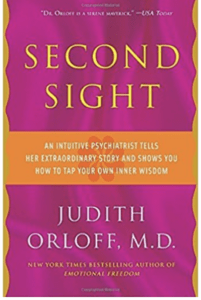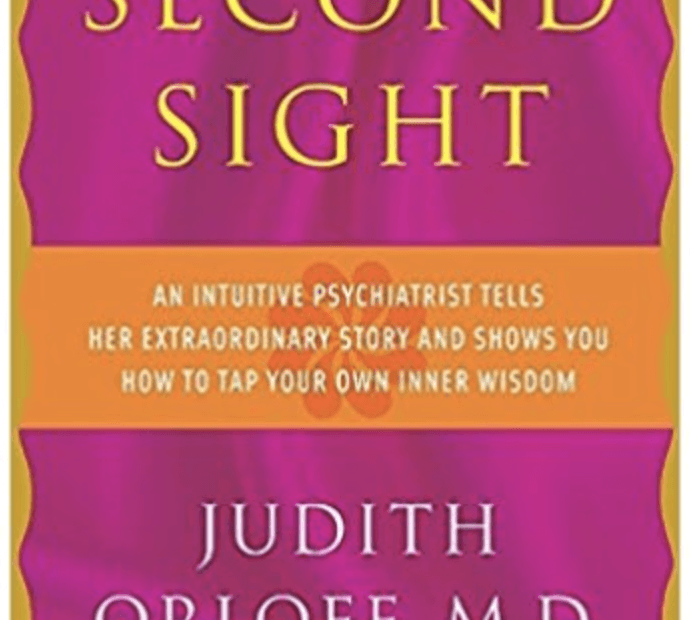
Discussion post I submitted for my Atlantic University TP5015 Course on Jane Orloff’s book, Second Sight – October 11, 2019
In what ways do elements of Orloff’s story remind me of similar experiences or insights I have had in your life?
I felt an immediate bond with Judith Orloff as she chronicled her wild teen years in her Second Sight. As my Dad used to say, I was a “house angel and a street devil.” While following most of the rules when I was in the confines of our house, I was a complete terror when I wandered outside. When I was in 7th grade, I followed the family tradition and was enrolled in a strict all-boys private school which was similar to the one depicted in Dead Poet’s Society without the boarding, which began a 6-year encounter with the school’s various disciplinary rules and regulations.
Orloff’s description of her teen years hit a nerve. She said, “I had to break free. During the past years, they’d watched me changed from being a quiet, sensitive girl into a stranger – unreachable, out of control” (2010, p. 8). Her sense of not fitting in and as such, rebelling against what her parents and those around her wanted her to become were hallmarks of my own experiences. I felt as if no one really understood me as I constantly butted heads with anyone in authority. Like Orloff, I also eventually matured enough to fit in the image of what I felt my parents and school wanted me to become, and that was a college graduate who would pursue some type of professional career, get married, and raise kids.
Also like Orloff, I’m finally waking up to the fact that you can only deny who you are for so long. I hope I can be as brave as she where she notes, “I understood that I had to reopen a part of myself that long ago had shut down – no matter how much it frightened me” (2010, xx).
In what way does Orloff’s journey inspire, challenge and/or motivate me?
The primary premise of Orloff’s book is what inspires me, and she figured it out about twenty years earlier than I have! While doing quite well in a demanding and conservative medical professional, she’s was able over time to reunite her true self and her healing practice. When she first became a psychiatrist, she attempted to bury her intuitive abilities but since it was such a large part of who she really was deep down, it eventually found its way into the healing work she did. As such, she touched people in a way that is unheard of in her line of work.
I also appreciate that she’s on a “journey.” As I wrote last week, my spiritual life is certainly a journey. Her willingness to search for sunken ships and treasures on the Seaview has great appeal to me. I’d love doing something as cool as that. She also makes the spiritual connection to that adventure. As she notes, “Yet, our expedition had meant so much more. Our voyage on the Seaview had been a spiritual pilgrimage, a mission into which we all threw ourselves heart and soul” (210, p. 117).
In what way does Orloff’s story give me greater insight into the power of combining western, scientific and medical perspectives and methods with the transpersonal? What are the potential strengths and weaknesses of such an approach?
Orloff’s approach of using her intuition to help her patients isn’t actually something new in the West. When I was growing up, Dr. Davies was my pediatrician, and he actually did house calls. I had chronic earaches, so he was a regular, and I still remember his gentle touch and approach. He was anything but clinical, and not only did he ask me questions, but I felt he tuned into my entire body through his focused eyes and light touch. Unfortunately, ever since the late 1960s and early 1970s when I was a child, Western medicine has moved further and further away from “instinctive” or “intuitive” medicine, and the entire process has become much drier and clinical.
I see the reuniting of the Western scientific perspective with the more transpersonal as inevitable. The marketplace with demand it, or at least a large segment of the population. For example, more and more people are waking up every day to the role that foods play in our overall health, they’re adopting practices such as yoga and meditation to help them with stress and increase their longevity, and they’re becoming better patient advocates. People are also pushing back on the need for endless flu shots and the overwhelming protocol of vaccinations. Maybe it’s more the crowd I’m familiar but I do see as part of the greater awakening that’s occurring that Edgar Cayce’s approach to medicine will come back into greater acceptance.
I see very little downside to bringing intuition and transpersonal methods to healing others. I’m sure there are lawyers lining up who disagree or more accurately are chomping at the bit to get a hold of such practitioners. Now that the genie’s been out of the bottle, however, it will be impossible to put him back in again.
References
Orloff, J. (2010). Second sight, Three Rivers Press: New York
